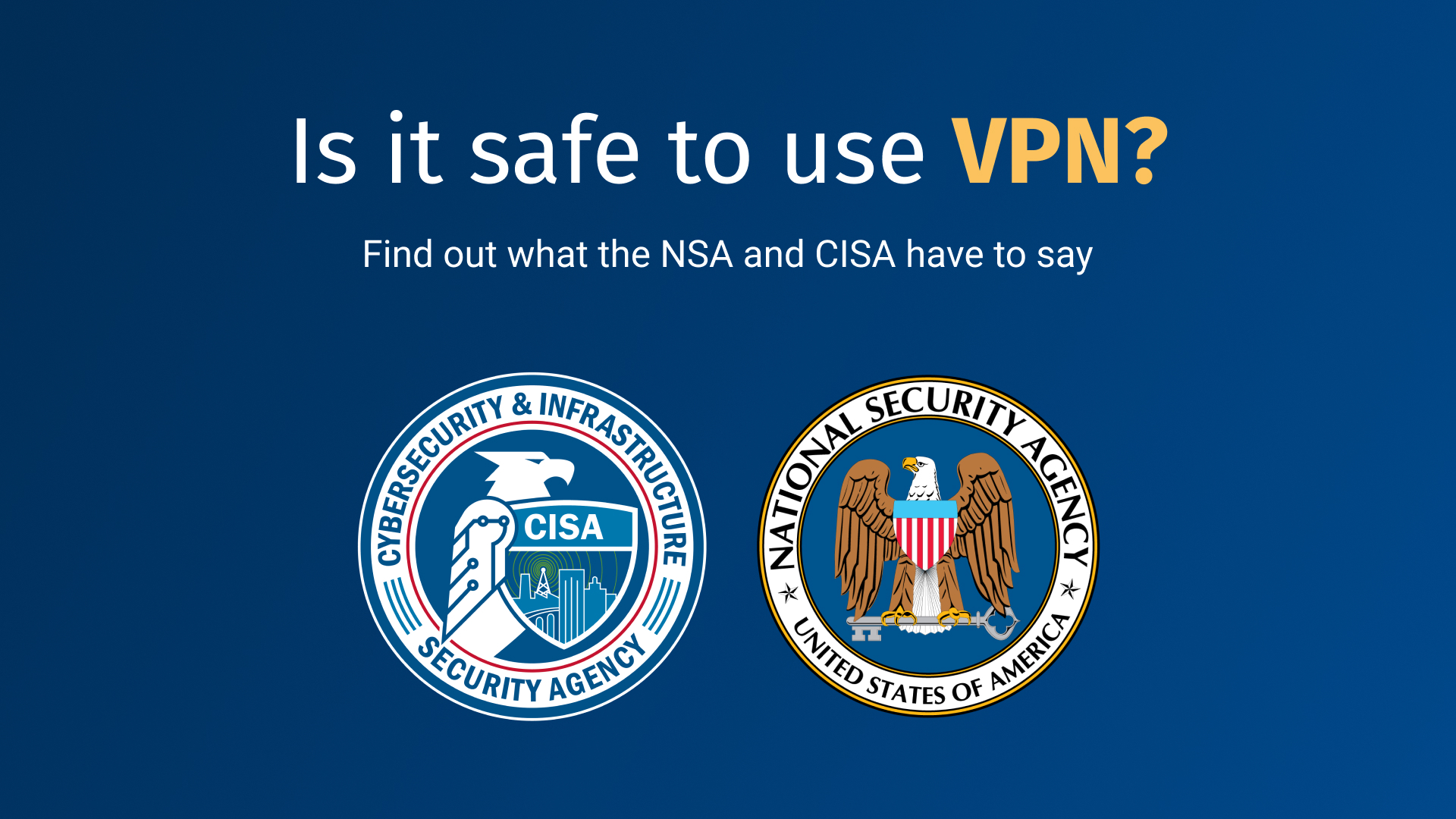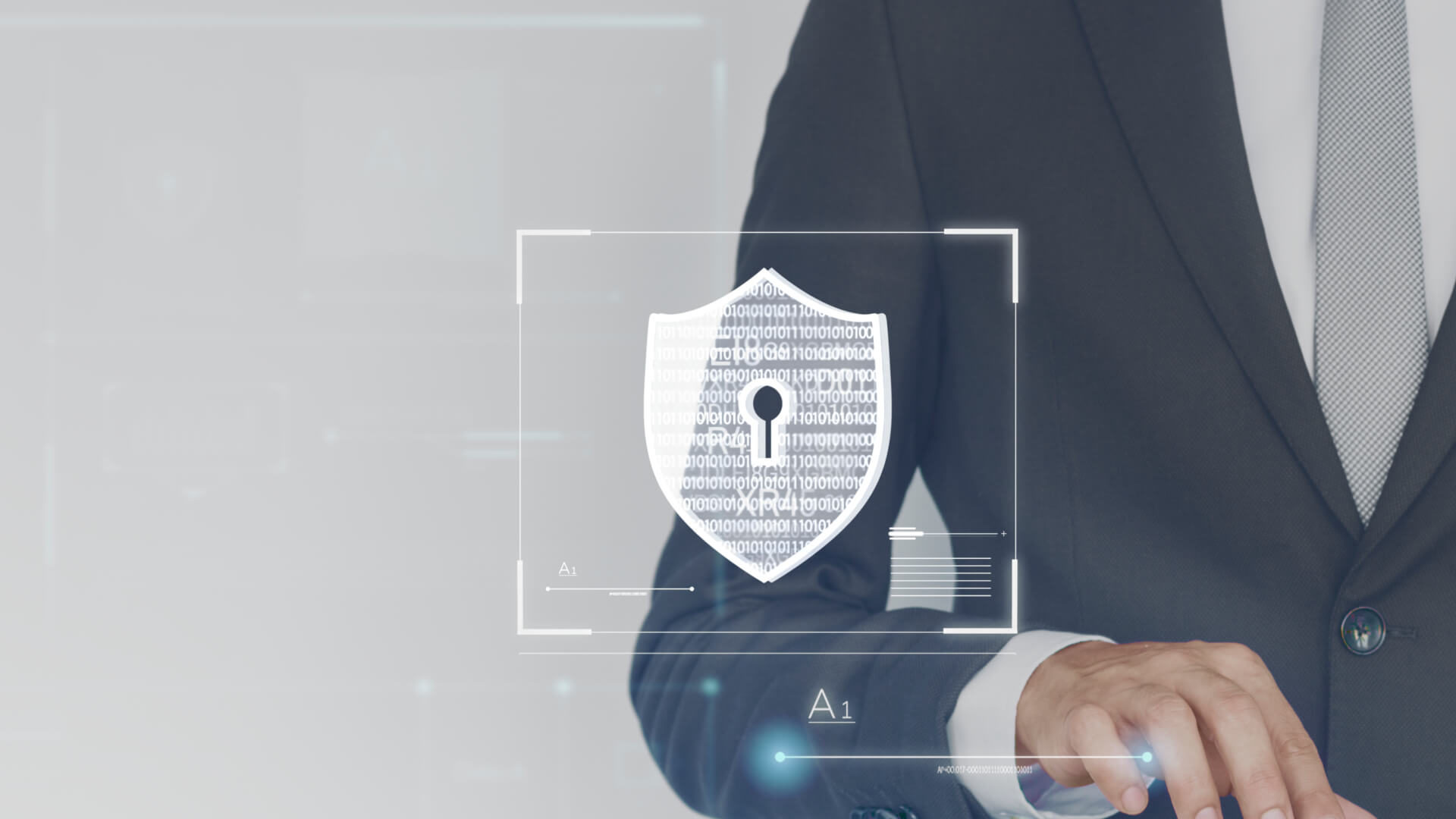Is it safe to use VPN? Find out what the NSA and CISA have to say

You can never have too much security, right?
Most people answering the question above will state that the more security the better.
However, it is also true that there is one area of our lives where security is constantly being neglected: when we access the Internet.
Accessing websites and applications daily requires a certain level of protection, so there are some very interesting options on the market today to help with data security.
One of them is the VPN.

What is a VPN?
VPN stands for “Virtual Private Network” and describes the opportunity to establish a protected network connection when using public networks. VPNs encrypt your Internet traffic and disguise your online identity. This makes it more difficult for third parties to track your online activities and steal your data.

How does a VPN work?
VPNs are connections that hide the IP address of whoever is connected to it, allowing the network to redirect them through a specially configured remote server that runs the VPN host. It is a tool that makes it possible to connect to the Internet securely and confidentially, and can be installed on devices such as computers, tablets, and smartphones.
To protect the user’s identity and location, VPN hides the personal IP, providing another address to disguise the true source of access. In this way, it is possible to surf the web anonymously and prevent online activities from being tracked by third parties. In addition, it allows remote connection to servers in other countries, so that the IP appears to be in a different region.

Considerations for selecting secure remote access VPNs
To highlight the security risks associated with the use of virtual private networks (VPNs), the U.S. National Cybersecurity Agency (CISA) and the National Security Agency (NSA) have released a guide with steps for companies to increase security around this technology.
Remote access VPN servers are entry points into secured networks, which makes them perfect targets for cybercriminals. Although in theory VPN seems like a secure option, some privacy issues, especially depending on the provider, can put users of this type of connection at risk.
The agencies claim that these vulnerabilities can allow criminals to collect credentials, execute code remotely on devices, and read sensitive data from network-connected computers, such as device settings or passwords.
The NSA and CISA also reveal that several persistent threats have already managed to master common VPN flaws, gaining access to connected devices that are vulnerable.

General recommendations from the guide
The guide shared by the NSA and CISA advises that companies use VPNs from vendors that constantly update their platforms with vulnerability patches. They also recommend that teams with network access follow practices to ensure strong authentication processes are in place.
The guide also shows that users can prevent VPN servers from being compromised by taking certain steps to decrease the surface area available for potential attacks.
In general, the tips for preventing VPN servers from being compromised are as follows:
- Apply patches and updates to all systems as soon as they become available.
- Follow vendor recommendations on applying patches and updates.
- Always update VPN access credentials of users and administrators.
- Limit external access to VPN devices via protocol limitations.
- Disable non-VPN-related features that may have vulnerabilities such as file sharing between network computers and the remote administration function.
- Prevent VPN network administrators from accessing the management interface remotely. The safest way is when these administrators are using company devices, where access is protected through equal protocols and updates on all company devices, thus avoiding possible invasions by vulnerabilities available on home machines.
You can find the complete guide on the official NSA website.
Want to increase the security of your business?
Protect your business from potential cyberattacks and avoid irreversible damage by choosing a secure, reliable VPN with consistent speeds. Protect access to VPN, email and any important application using multi-factor authentication. Count on Algardata to ensure the security of your company! Find out more about our cybersecurity solutions.
Newsletter!
Subscreva a nossa newsletter e receba semanalmente todas as atualizações, com bónus de um ebook diferente todos os meses!
